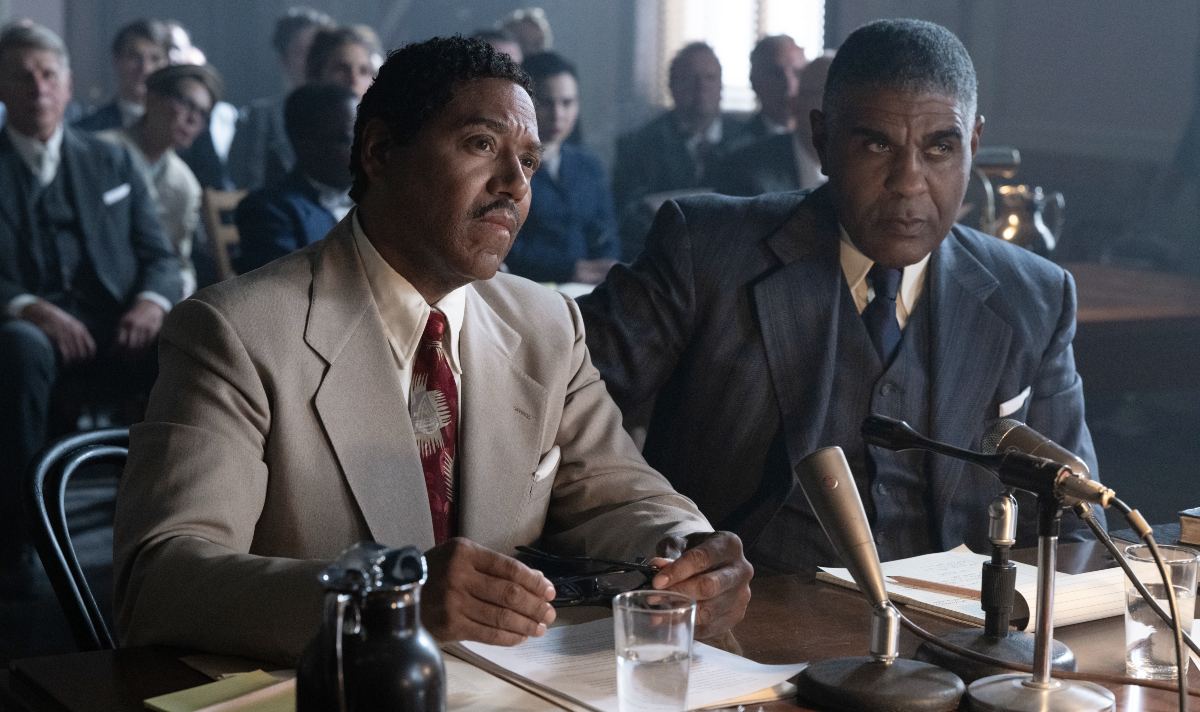‘Fellow Travelers’ Is Tackling the Real-Life Injustices Inflicted by Red Scare McCarthyism

Showtime’s Fellow Travelers is giving audiences an interesting lesson in history. They even touched on the legendary Black writer, Langston Hughes.
Most of Fellow Travelers is about the spicy romance between the two main characters, Hawk (Matt Bomer) and Tim (Jonathan Bailey). Since the show partially takes place in the 1950s, there are a lot of important historical events occurring in Washington D.C. at that time. Tim works for the notorious Senator Joseph McCarthy, who uses all of his power to combat the vastly imagined threat of communism in America. McCarthy orchestrated the Red Scare, going after almost anyone who questioned the status quo.
In episode 2 of Fellow Travelers, journalist Marcus Gaines (Jelani Alladin) attends the McCarthy trials daily to report on them. One day he finds one of his favorite poets, Langston Hughes (Brian Dunstan), being questioned for his political poetry and connection to the communist party.
The power of Langston Hughes
Langston Hughes was a central figure in the Harlem Renaissance, a cultural revolution for Black creators and intellectuals. Harlem in New York City became the creative center for Black artists of all kinds. In the 1920s and 1930s, music, art, and poetry from Black artists flowed out of Harlem. Hughes’ writing took many forms but he is most well-known for his poetry.
Much of Hughes’s work, especially his earlier work, may be considered political simply because it focuses on the struggles of certain Americans. As a Black man, his work often described the plight of African Americans. He also talked about low-income people and others left behind by rich, white Americans. Many of his poems, or at least lines from them, were featured in communist newsletters and papers. Hughes’s words spoke to people looking to change the system.
In Fellow Travelers, like in real life, Hughes says he is not affiliated with the communist party even though he had attended some communist-friendly events. McCarthy and his team go after Hughes for his criticism of locking people up who have leftist views. During the episode, Marcus recites portions of Hughes’s poem “Kids Who Die.” At the end of the episode, Marcus says the final stanza of the poem:
Listen, kids who die—
Maybe, now, there will be no monument for you
Except in our hearts
Maybe your bodies’ll be lost in a swamp
Or a prison grave, or the potter’s field,
Or the rivers where you’re drowned like Liebknecht
But the day will come—
You are sure yourselves that it is coming—
When the marching feet of the masses
Will raise for you a living monument of love,
And joy, and laughter,
And black hands and white hands clasped as one,
And a song that reaches the sky—
The song of the life triumphant
Through the kids who die.
Much of the poem rings as true today as it did when Hughes wrote it, making it feel like not much has changed in America. Although Hughes was cleared of any communist-related charges, he no longer wrote poetry the same way. Hughes no longer weighed in on social issues, which is a shame for us all.
(featured image: Showtime)
Have a tip we should know? [email protected]